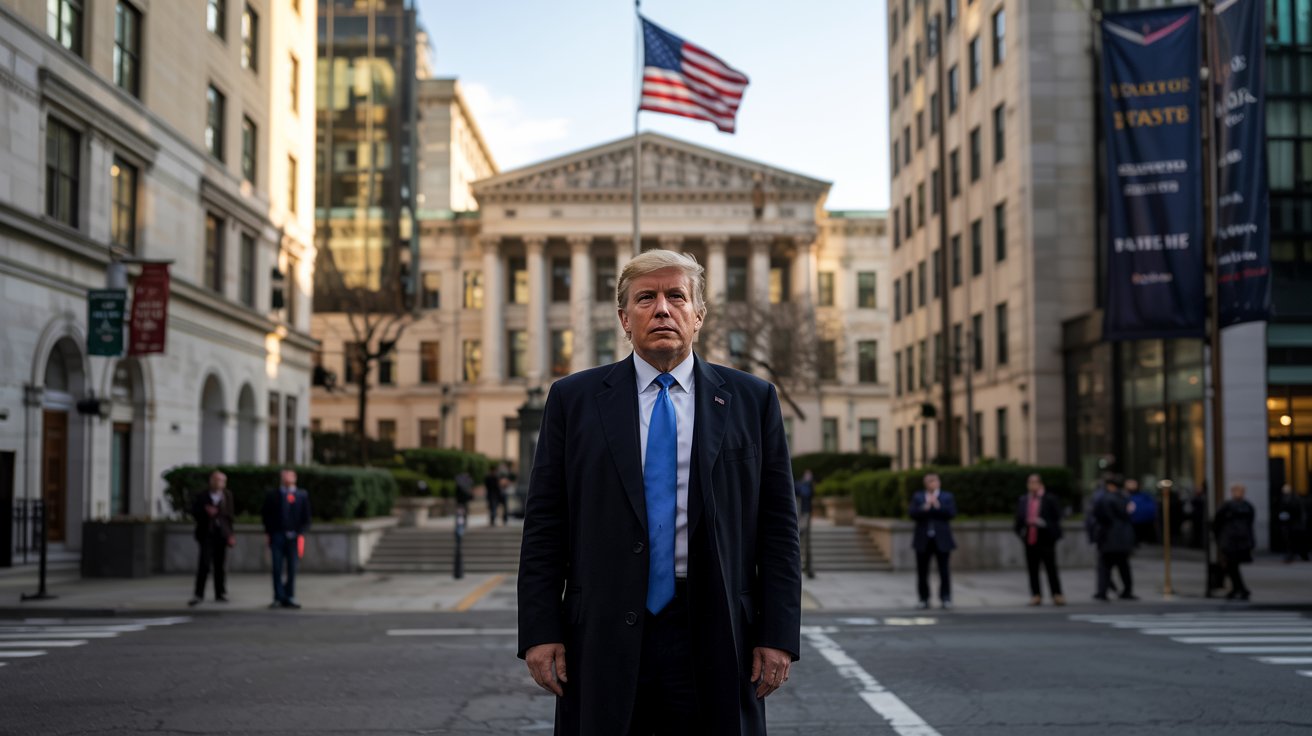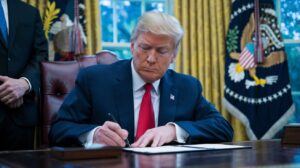The Trump administration pressures top law firms for $600M in free legal aid, prompting serious debate across the legal and political landscapes in America. This bold request to elite legal institutions isn’t just about free services — it signals a wider shift in how politics may influence the U.S. justice system.
Understanding the $600M Legal Push: What Happened and Why?
The administration has reportedly secured verbal and written commitments from major law firms like Kirkland & Ellis, Latham & Watkins, and Simpson Thacher to provide a combined $600 million in pro bono legal services. The initiative focuses on issues like veterans’ rights, antisemitism, and constitutional liberties.
This came shortly after the Equal Employment Opportunity Commission (EEOC) began probing these firms for diversity and inclusion hiring practices. In return for their pro bono pledges, the EEOC appears to have dropped or paused its investigations.
Why These Agreements Are Controversial
Many legal professionals are raising red flags. While supporting veterans and marginalized groups is essential, critics argue that pressuring firms to act under potential threat — or in exchange for leniency — is legally and ethically problematic.
Trump Administration Pressures, What’s at Stake:
| Factor | Supporters Say | Critics Say |
|---|---|---|
| Legal Aid Impact | Helps underserved communities | Politically driven allocation of aid |
| Independence of Law Firms | Firms choose causes aligned with public need | Forced aid weakens firm autonomy |
| EEOC Investigation Outcome | Supports ending racial hiring preferences | Appears coercive and undermines DEI efforts |
| Public Perception | Shows commitment to national causes | Risks damaging trust in legal neutrality |
How Law Firms Are Reacting — Support vs. Lawsuits
Several firms, including Cadwalader, Wickersham & Taft, have supported the move. Others — notably WilmerHale, Jenner & Block, and Perkins Coie — are now suing the administration. They argue the agreements violate free speech, interfere with internal policies, and misuse executive authority.
Legal Basis of Resistance:
- First Amendment violations
- Overreach of federal power in private enterprise
- Chilling effect on pro bono independence
What This Means for Legal Independence in the USA
This situation isn’t just about law firms—it raises a bigger concern: Can a government pressure private institutions to serve political goals under the guise of public good?
Here’s why this is crucial for U.S. citizens:
- Pro bono work may become politicized, instead of independently serving communities in need.
- The neutral role of lawyers could shift if political incentives dictate their direction.
- Legal firms may avoid taking positions or clients that conflict with federal preferences.
Key Data to Know
- 12+ law firms involved
- $600 million total in pro bono services
- 3+ federal lawsuits filed as of April 2025
- Top firms include: Latham & Watkins, Kirkland & Ellis, Simpson Thacher
Conclusion: Justice or Political Strategy?
The Trump administration’s push for $600 million in free legal aid raises both praise and alarm. While the help for veterans and First Amendment causes is valuable, the method of securing those commitments has triggered lawsuits, warnings from legal ethics experts, and national attention.
This legal-political entanglement could reshape how independent justice functions in the USA.
Whether this leads to stronger support for underserved populations or undermines the autonomy of America’s legal institutions, the outcome of the ongoing lawsuits will set a significant precedent.
[USnewsSphere.com / reu.]





